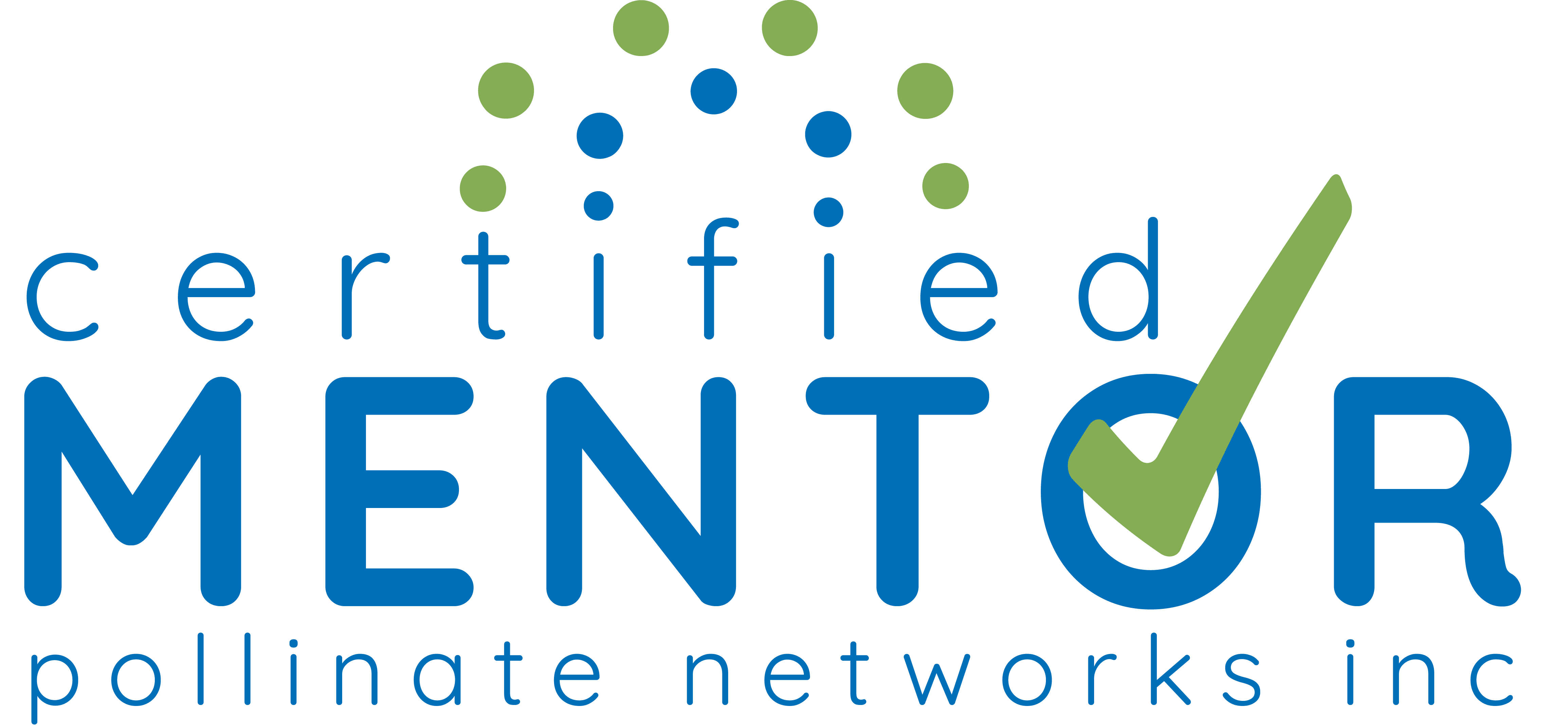The Crucial Role of Mentor Certification
In today’s rapidly evolving professional landscape, the value of mentorship programs in nurturing talent, enhancing engagement, and building healthy organizations and workplaces has gained widespread recognition. A recent headline in the Harvard Business Review boldly proclaimed, “Mentoring Should Be Mandatory,” shedding light on the critical role that mentorship plays in personal and organizational development. However, it’s essential to dispel the notion that effective mentorship naturally unfolds without structure or guidance. To unlock the full potential of mentorship, it necessitates a well-defined framework and a strategic approach.
Recognizing the need for a structured approach to mentorship and training mentors, we launched an initiative last year to ensure mentors are prepared to play the role to the best of their ability. As the creators of the cutting-edge mentorship algorithm, Cross-Pollinate AI, Pollinate is excited to pioneer a transformative pathway to mentor certification.
Why should one aspire to become a certified mentor?
The answer lies in the evolving dynamics of our contemporary lives and work environments. In today’s interconnected world, the traditional notion of approaching someone you admire and expecting them to have the time, inclination, expertise, or the necessary mentoring skills has become increasingly unrealistic. The Pollinate Certified Mentorship Program is designed to address this challenge by offering a comprehensive certification process that encompasses a wealth of knowledge about mentorship’s best practices. This certification is not limited to individual mentors; it can also be tailored to meet the needs of organizations looking to establish, enhance, or endorse their mentorship programs.
Formalizing a mentorship program with certified mentors not only enhances its credibility but also mitigates risks for both mentors and mentees, not to mention the organizations or institutions involved. Recently I discussed this new program with our founder, Christy Pettit, and this is what she had to say,
“It’s been a long journey, and we’ve witnessed a huge variety of mentor-mentee pairing over the past fourteen years. Having worked with mentoring pairs and collaborative groups for over a decade, we are the most qualified to offer this certification opportunity. While some mentorship training programs do exist, what sets us apart is our commitment to establishing a defined set of standards.”
The Pollinate approach to mentoring squarely focuses on the mentee taking a leading role in driving the relationship, while the mentor’s responsibility is to provide guidance and occasional steering. Through this lens mentors find the experience to be an incredibly rewarding experience, especially when they are equipped with the right tools.
 The core curriculum of the Pollinate Certified Mentorship is firmly rooted in a profound understanding that storytelling is more effective than mere information sharing and that asking questions often surpasses giving advice. The program emphasizes the importance of addressing unconscious bias, understanding privilege, and promoting diversity and inclusion as fundamental aspects of de-risking the mentorship process while providing a framework for mentor practitioners to offer trauma-informed support.
The core curriculum of the Pollinate Certified Mentorship is firmly rooted in a profound understanding that storytelling is more effective than mere information sharing and that asking questions often surpasses giving advice. The program emphasizes the importance of addressing unconscious bias, understanding privilege, and promoting diversity and inclusion as fundamental aspects of de-risking the mentorship process while providing a framework for mentor practitioners to offer trauma-informed support.
Pollinate also recognizes the significance of adapting to different learning styles. It’s crucial for mentors to comprehend how best to collaborate with their mentees, as some thrive on extensive interaction, enjoy brainstorming, and relish energetic exchanges, while others prefer minimal interaction.
Pettit adds, “You may have been mentoring for years—or even been mentored yourself—but this program serves as excellent skill reinforcement and sends a message throughout your organization that it values doing things in the most conscientious, and supportive way.”
There is no question that today’s organizations stand to gain immensely from an unwavering focus on mentorship. Through knowledge transfer, skill development, enhanced engagement, improved communication, increased retention, positive role modelling, and a true commitment to continuous improvement, certifying and up-skilling mentors can act as a linchpin for cultivating a healthy organizational culture that values growth, inclusivity, and the well-being of its employees.
Don’t make the same old mentorship program mistakes, build a program you can be proud of. Follow Pollinate on LinkedIn or reach out today to become a certified mentor.
Cindy Collins – Director, Client Delivery
Cindy Collins provides strategic and tactical day-to-day leadership to the client services operations and project management team at Pollinate Networks. With a mandate of fostering a collaborative approach in delivering exceptional client services, this role works closely with B2B clients to thoroughly understand their needs and to manage the fluid sharing of that knowledge throughout the implementation of mentoring, assessment and consultative initiatives. Cindy also contributes to the functional management of sales and marketing strategy for the organization.





